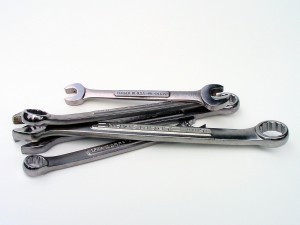A boiler is a large unit often installed in the basement or in its own room or area for heating a home or business.
Boilers are quite effective at providing heat, as they distribute heat more evenly than forced-air units like furnaces and heat pumps and can be modified for zone control. Water is heated at the boiler and then makes its way through a series of pipes to allow convective and conductive heat into a room. But in order to do so, it must reach a terminal unit, which is selected by the homeowner and the technician during boiler installation.
Which type of terminal unit is chosen generally depends on your home and family’s needs and your budget. You should always speak with a technician before setting your sights on a particular type of terminal unit, but as a starting point, the following list contains a guide to a few of the most popular terminal units for hydronic heating systems.
- Baseboard Units: A baseboard unit is installed at the bottom of the wall in each room or zone in the house. These units are highly effective and can blend into the décor of a room so there is little interference with the interior design. These are some of the most common terminal installations.
- Radiators: A radiator is a fairly outdated terminal unit for heat transfer, but it’s still in use primarily in industrial settings, particularly where a steam boiler is in use. However, some homeowners appreciated the look and feel of cast-iron radiator, and keep it in the home for heating and to add an industrial or vintage feel to the home.
- Fan Coil Units: A fan coil unit contains a heat exchanger, blower fan, and filter to circulate air in the home from a boiler and/or a commercial chiller. As water moves through the unit, it sprays onto the heat exchanger, allowing for a set of thermodynamic processes to take place so that a fan can blow conditioned air in the home.
- Radiant Floor Heating: Finally, many homeowners today choose radiant floor heating, which means a set of pipes runs underneath the floorboards in order to provide even heating, warm feet, and all-around comfort.
The heating professionals at Polar Bear Air Conditioning & Heating Inc. know a thing or two about boiler installation in Northern Virginia. For quality installation, give us a call today!



 Do you want all the benefits of a gas boiler without the high replacement cost? Have you considered an oil to has conversion? Polar Bear Air Conditioning & Heating, Inc. offer oil to gas boiler conversion for customers in the Washington, D.C. area.
Do you want all the benefits of a gas boiler without the high replacement cost? Have you considered an oil to has conversion? Polar Bear Air Conditioning & Heating, Inc. offer oil to gas boiler conversion for customers in the Washington, D.C. area.